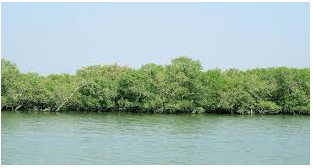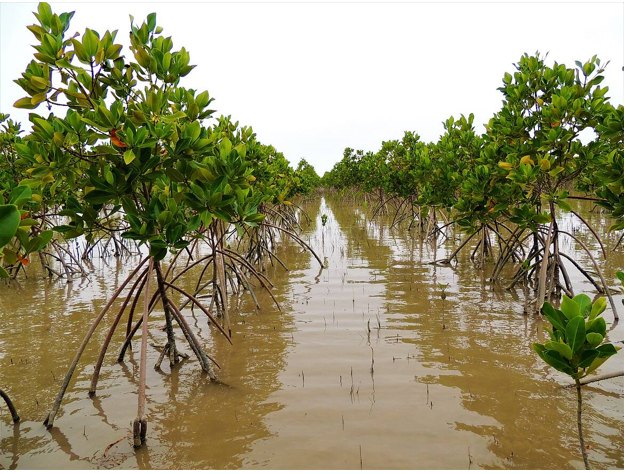INP-WealthPk
Ahmed Khan Malik
Experts have called for enhancing the mangrove forest cover in the Indus delta as these have enormous potential for generating livelihoods for local communities and uplifting the national economy.

The mangrove ecosystem in the Indus delta has been adversely affected in the recent years by over-exploitation of coastal resources, pollution and acute scarcity of freshwater from River Indus due to diversion of water for inland agriculture, coastal urbanisation and industrialisation. The situation is exacerbated by a general lack of education and awareness about sustainable use of mangrove forests on the part of communities, policymakers and implementers. Indus delta mangroves are dependent on freshwater discharge for their survival. “The Indus delta mangrove ecosystem provides habitat for fish, plants, crustaceans, birds, mammals, reptiles and amphibians,” Saeed Lashari, an expert on blue economy, said.

Talking to WealthPK, he said that 98 species of fish had so far been recorded in the Indus delta mangroves. “Most of the fish are attracted towards mangrove swamps during high-tide periods due to nutrient-rich food sources present in these areas. The evergreen forests of the Indus delta mangroves provide a habitat for waterfowls. Migratory birds such as flamingos, pelicans, cranes, cormorants, in flocks of thousands visit the Indus delta for feeding, roosting and breeding from November to February every year.” “It has been observed that the population of migratory birds has declined due to degradation of habitat during the last decade.
Similarly, the number of sea dolphins has also reduced in mangroves due to marine pollution,” he pointed out. Lashari pointed out that mangrove forests were one of the most productive ecosystems and around 500,000 people directly relied on the mangrove services in the Indus delta. “The mangrove swamps of Sindh’s coastal zone are a sweeping 600,000 hectares – a total 95% of the mangrove population in the country.” However, he said mangroves were continuously in decline due to rapid deforestation. “Both climate change as well as urbanisation and industrialisation have impacted mangrove shrubs.”
“Coastal communities depend upon the rich mangrove ecosystem for their survival and well-being. In the past, unsustainable and haphazard harvesting of mangroves, sea water intrusion, rising sea levels and other factors posed serious threats to the mangroves of the Indus delta,” Lashari noted. Ahmed Tausif, another expert on blue economy, highlighted the financial aspects of mangrove conservation and called for promoting it as an industry. “Mangrove forests grown over a single hector have potential to earn thousands of dollars.
Conservation of Indus delta mangroves could earn Pakistan billions of dollars annually through marine fisheries, sea food exports, creation of livelihood opportunities and resources for local communities as well as carbon credits,” he observed. He said that loss of mangroves in the coastal areas had led to a reduced reproduction and procurement of commercially important fish, loss of livelihood of fishing communities, increase in coastal erosion and reduced availability of wood.
Credit: INP-WealthPk













